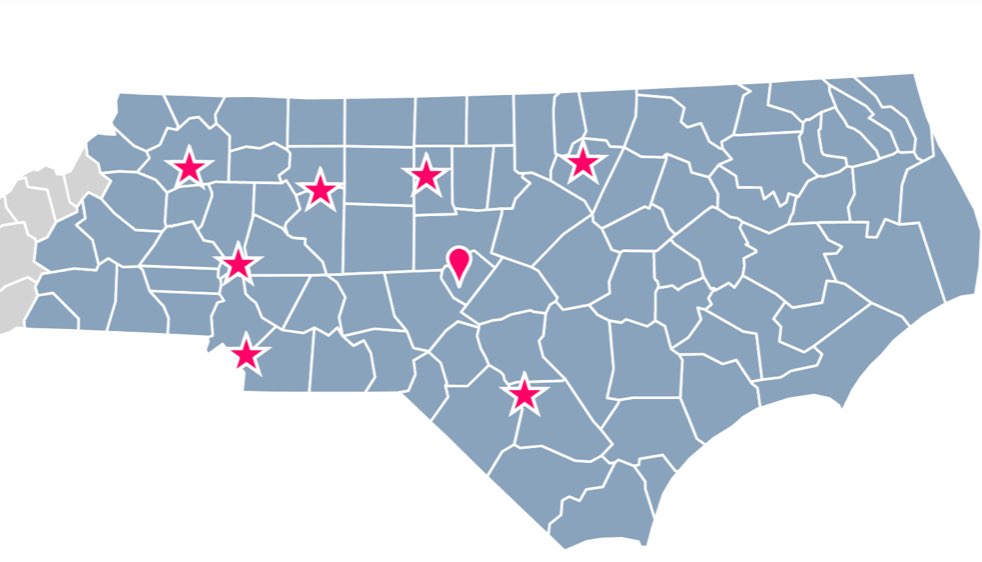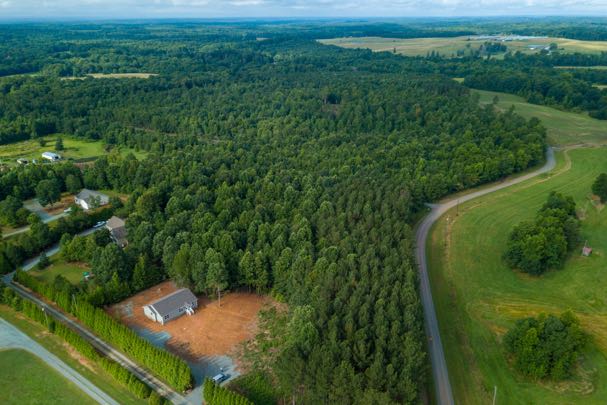If you have been looking to buy land in North Carolina, then we have the information you need to get started.
 Finding and buying is a crucial first step to building your dream home. You can find land through any real estate search, like Zillow, but the most important part is to know what to look for. Here is a guide to the terminology and tips for finding the right land for you in North Carolina.
Finding and buying is a crucial first step to building your dream home. You can find land through any real estate search, like Zillow, but the most important part is to know what to look for. Here is a guide to the terminology and tips for finding the right land for you in North Carolina.
What’s your water source?
You’ve got to have water for your new home! Call your county and they can do an address search to see if your property has water on-site, and what the one-time tap fee would be to tap into that water source. The other option is getting a well or using an existing well on the property. An existing well would need to be inspected to be sure it is okay to use. For a new well, you would need to drill down. Ask surrounding neighbors to see how deep their wells are, so you can get an idea of how deep you will have to drill when you hire someone to install your well. Sewer systems are another consideration–your county can give you the information you need for your septic system as well.
Who’s got the power?
When you look at your land, look for power sources close by. If you see electric poles, then you can see if electricity is readily available or if you need to get the power company out to bring electricity to the lot. This should not be a hefty expense because they want to bring electricity so that you can be a lifetime customer.
Other items to consider when buying land in North Carolina:
- Typography – Otherwise known as the lay of the land. The typography will dictate the foundation (slope and movement). If the lot is significantly sloped, then you’ll need to work that into the house design with a walkout basement, for example.
- Clearing – Are there trees that need to be removed? Is there an opportunity to add a driveway? While tree cover is beautiful, it does add potential extra costs when clearing the lot for building.
- Standing water – Are you in a flooding range? Living on a flood plain is doable, but it is always best to do some due diligence ahead of time to see what kinds of risks it poses and the potential cost for insurance, etc.
- Springs – You can tell if there’s a natural spring on your land by looking for ferns and green vegetation. If there is a water spring on your property, it may cause flooding in your yard or basement. To stop a water spring from discharging into your yard, you would need to install a subsurface linear French drain to capture and divert the water before it becomes a nuisance. Again, this is an additional expense you will want to plan for.
- Covenants and HOA – Neighborhood covenants and homeowners associations will have certain guidelines for how homes should look and may also have guidelines about driveways, set-backs and what can be parked on your property, etc.
We offer many resources to help you find your lot, so you can get started building your new Value Build home. For additional tips, check out our Events and Webinars and our Land Acquisition Process blog.
Remember, Value Build will come to your lot and perform a complimentary land evaluation. Drop us a line, so we can get you on the path to your new home!
About Value Build
Value Build Homes is a custom home builder that serves North Carolina and South Carolina by providing high-quality, affordable new construction homes. We offer more than 25 different new home plans or you have the option to create your own unique configuration. With offices across North Carolina and South Carolina, we continue to deliver on our promise to never sacrifice quality for one of the most important financial investments in our homeowner’s life. For more information, Ask an Expert with our Live Chat, call 919-899-4488 or make an appointment.


